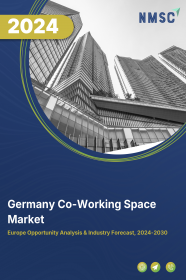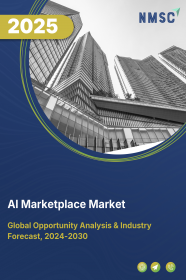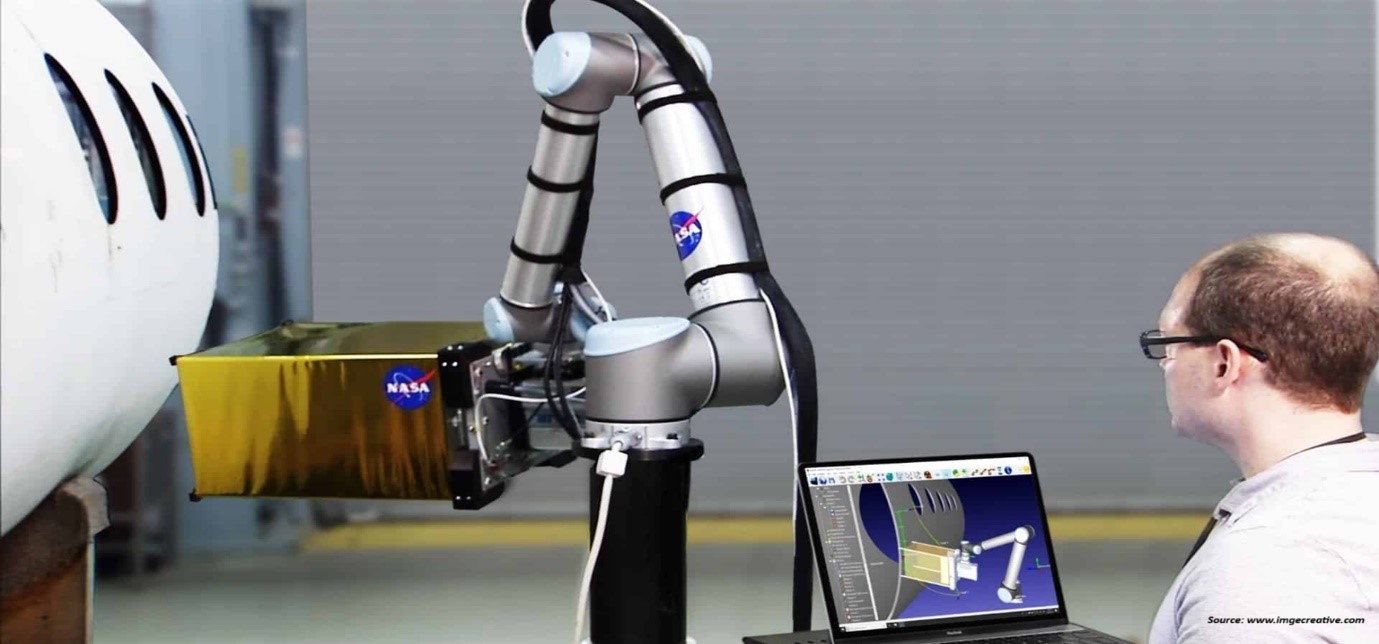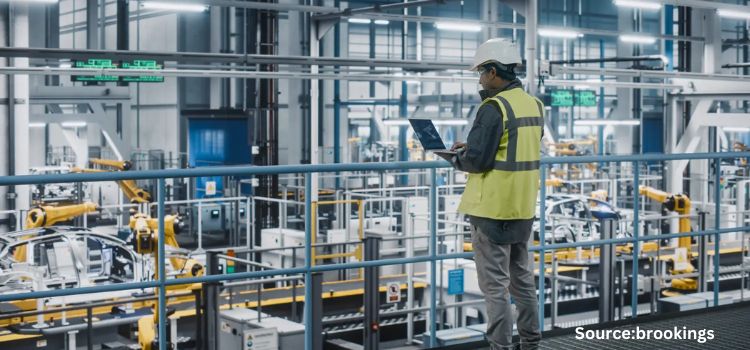
Germany Co-Working Space Market by Business Type (Conventional Co-working, Professional Co-working, and Others), by Business Model (Sub-Lease Model, Revenue Sharing Model, and Owner-Operator Model), and by End User (Independent Professionals, Startup Teams, and Small and Medium Sized Enterprises) –Opportunity Analysis and Industry Forecast, 2024–2030
Industry: ICT & Media | Publish Date: 06-Nov-2024 | No of Pages: 169 | No. of Tables: 132 | No. of Figures: 57 | Format: PDF | Report Code : IC2022
US Tariff Impact on Germany Co-Working Space Market
Trump Tariffs Are Reshaping Global Business
Market Definition
Germany Co-Working Space Market size was valued at USD 492.5 million in 2023, and is predicted to reach USD 1467.0 million by 2030, at a CAGR of 16.8% from 2024 to 2030. Coworking spaces present a flexible and versatile solution to meet the changing demands of businesses. These shared work environments offer flexibility in leasing terms and space requirements, which is particularly attractive to startups and small enterprises aiming to avoid the initial expenses associated with traditional offices. The communal atmosphere promotes networking and collaboration among professionals from various backgrounds, fostering innovation and creativity. With modern amenities and strategic locations, coworking spaces offer cost-effective, scalable, and accessible options for companies seeking a central presence without committing to long-term leases. The industry has witnessed significant growth as businesses acknowledge the advantages of this approach, embracing the collaborative opportunities and shared resources offered by coworking spaces.
Transforming Work Landscape Propels the Growth of the Market
The market is driven by a fundamental shift in how work is perceived and conducted, fueling the rapid growth of the coworking space market in Germany. As traditional work models give way to more flexible and collaborative approaches, there is an increased demand for coworking spaces, especially among startups and innovative enterprises. This surge underscores the evolving needs of businesses, which are increasingly seeking dynamic work environments that foster innovation and productivity.
Strategic Collaborations in the Region Fueling the Growth of the Market
Partnerships between real estate developers and coworking space providers play a pivotal role in expanding the coworking market in Germany. Notably, in February 2023, infinitSpace teamed up with CG Elementum, a prominent German commercial real estate developer, to establish a new flexible workspace brand. This collaboration focuses on creating innovative workspaces characterized by advanced technology integration, community-driven ethos, and robust Environmental, Social, and Governance (ESG) standards. Such partnerships not only enhance the accessibility and quality of coworking spaces but also contribute to fostering cohesive and sustainable work environments across the country.
Growing Worries Related to Cybersecurity Hinders the Growth of the Market
The cybersecurity challenge poses a significant barrier to the widespread adoption of coworking spaces, especially for businesses handling sensitive data. These collaborative work environments, which depend on shared technology infrastructure, are vulnerable to security breaches that could lead to unauthorized access and data exposure. This concern is particularly crucial for firms responsible for protecting client confidentiality and proprietary information. The communal nature of coworking spaces amplifies risks related to network security, physical access, and device vulnerabilities, raising concerns among businesses about safeguarding sensitive information.
The Combination of Augmented Reality (AR) and Virtual Reality (VR) Creates Future Opportunities for the Growth of the Market
The incorporation of Augmented Reality (AR) and Virtual Reality (VR) technology into coworking spaces is poised to create numerous growth opportunities for the coworking industry. These immersive technologies are anticipated to redefine the experience of remote collaboration by allowing individuals to actively engage in virtual meetings, collaborative projects, and training sessions with a heightened sense of physical presence. By removing geographical barriers and enhancing the interactive aspect of remote work, AR and VR are expected to increase the appeal of coworking spaces equipped with these technologies.
For instance, in May 2023, Sightful, a Tel Aviv-based company, unveiled Spacetop, the world's leading Augmented Reality (AR) laptop, securing USD 61 million in funding from investors like Aleph and Corner Ventures. Spacetop seamlessly integrates reality with AR, providing an advanced personal computing experience that surpasses the limitations of traditional laptops, thereby revolutionizing the landscape of coworking and remote collaboration. This integration is anticipated to attract a broader audience seeking innovative and technologically advanced solutions, thereby significantly contributing to the growth and advancement of the coworking space market.
Competitive Landscape
The Germany co-working space market comprises of various companies including Regus Group Companies, Techspace Group Ltd., Knotel Inc., Simpliwork, Talent Garden S.p.A., We Work Management LLC., Servcorp Limited, The Office Group Ltd., LiquidSpace, Impact Hub GmbH, and others.
The Germany Co-Working Space Market Key Segments
By Business Type
-
Conventional Co-working
-
Professional Co-working
-
Others
By Business Model
-
Sub-Lease Model
-
Revenue Sharing Model
-
Owner-Operator Model
By End User
-
Independent Professionals
-
Startup Teams
-
Small and Medium Sized Enterprises
REPORT SCOPE AND SEGMENTATION:
|
Parameters |
Details |
|
Market Size in 2023 |
USD 492.5 Million |
|
Revenue Forecast in 2030 |
USD 1467.0 Million |
|
Growth Rate |
CAGR of 16.8% from 2024 to 2030 |
|
Analysis Period |
2023–2030 |
|
Base Year Considered |
2023 |
|
Forecast Period |
2024–2030 |
|
Market Size Estimation |
Million (USD) |
|
Growth Factors |
|
|
Companies Profiled |
10 |
|
Market Share |
Available for 10 companies |
|
Customization Scope |
Free customization (equivalent up to 80 working hours of analysts) after purchase. Addition or alteration to country, regional, and segment scope. |
|
Pricing and Purchase Options |
Avail customized purchase options to meet your exact research needs. |
KEY PLAYERS
-
Regus Group Companies
-
Techspace Group Ltd.
-
Knotel Inc.
-
Simpliwork
-
Talent Garden S.p.A.
-
We Work Management LLC.
-
Servcorp Limited
-
The Office Group Ltd.
-
LiquidSpace
-
Impact Hub GmbH

















 Speak to Our Analyst
Speak to Our Analyst





















